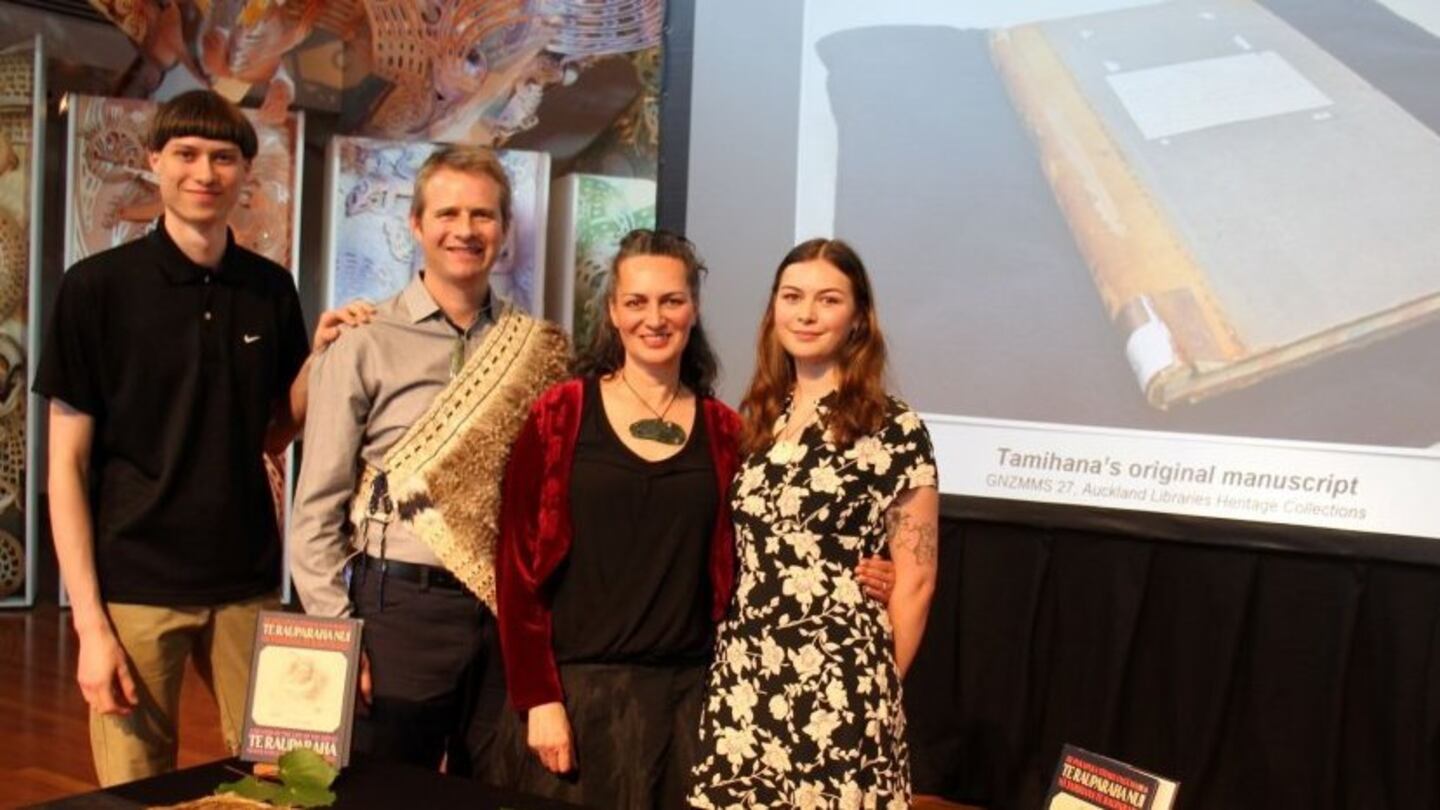Ross Calman and whānau. He will receive an honorary doctorate recognising his mahi. Photo/Heeni Collins
Ross Calman (Ngāti Toa, Ngāti Raukawa, Ngāi Tahu) has written more than a dozen works, including books on the Treaty of Waitangi and the New Zealand Wars, edited more than 100 books in te reo Māori and English, translated a number of books into te reo Māori, and written numerous articles and chapters on Māori history and traditional Māori society.
Now he is to be awarded an honorary doctorate from Te Whare Wānanga o Waitaha (University of Canterbury) next week. One of his best-known books is He Pukapuka Tātaku i ngā Mahi a Te Rauparaha Nui – A Record of the Life of the Great Te Rauparaha, published by Auckland University Press in 2020. The work held deep personal significance for Calman who is a descendant of Te Rauparaha. He describes the book as a "pinnacle" in his career.
“For me, Te Rauparaha was a remarkable leader who was also involved in some very violent campaigns,” he says. “But it’s important to understand the historical context for those events and to explain those nuances and provide more information for people trying to interpret these events today.”
Calman’s expertise with te reo Māori is even more impressive considering when he enrolled at the university as an undergraduate, he had only a superficial understanding of his whakapapa and little te reo Māori. He graduated with a BA with first-class honours in English in 1994.
Didn't know his whakapapa
“When I started at the University of Canterbury in 1990, I didn’t really know what my whakapapa was,” he says. “It wasn’t until a couple of years later after talking to my grandmother that I found out about my iwi, and that I was descended from Te Rauparaha.”
Calman told teaomaori.news he has developed a passion for te reo Māori since his meagre beginnings and says, if more reo Māori-speaking historians joined the ranks, it would lead to much more accurate history telling.
"Ka panoni katoa aua whakaaro. Ko te nuinga o a tātou kōrero hītori i roto i te reo Pākehā kua ngaro te tirohanga Māori. Kua ngaro katoa i roto i ngā pukapuka. Āe, mēnā ka whakangungu a tatou tamariki ki te kōrero Māori me te titiro ki ngā kōrero tuku iho a ngā tupuna ka tū anō he pou o ā tatou kōrero hītori. Ko te pou Ngāi Māori kua ngaro."
(All those perceptions would change. Currently, most of our history is published in English, and our Māori perspective has been lost. Diminished in those books. So yes, by increasing our tamariki knowledge and use of our language, and looking at what our tūpuna wrote we can then re-establish another pillar of the history of Aotearoa. At the moment our Māori pillar is missing.)
Te Rauparaha's son
While he was studying in the university library, he came across a bound photocopy of a manuscript about the Ngāti Toa leader written in te reo Māori by his son Tāmihana Te Rauparaha. “I thought, ‘This would be amazing, I need to read this’, so it sent me off on a quest to learn te reo Māori, over many years really.
“It was over 20 years later before I picked up that manuscript again, in 2014, and started trying to decipher it. The resulting book is my biggest achievement and the thing that means the most to me and has the most personal significance in terms of the journey I’ve been on.”
His wife, writer and musician Ariana Tikao, had shared parallel interests to his own, he says, and was a huge support to his career.
Calman is currently working on adapting He Pukapuka Tātaku i ngā Mahi a Te Rauparaha Nui – A Record of the Life of the Great Te Rauparaha into a podcast series and is also translating other historical Māori manuscripts and letters with a view to publishing them as a follow-up work.



